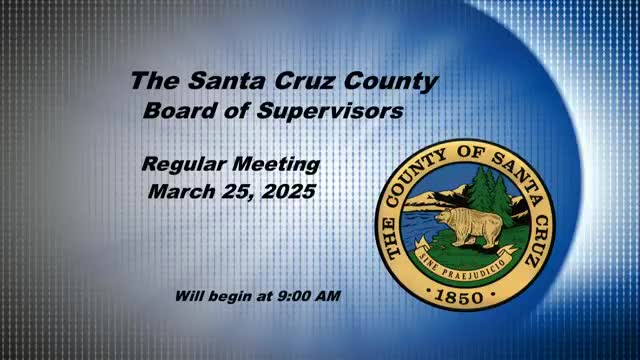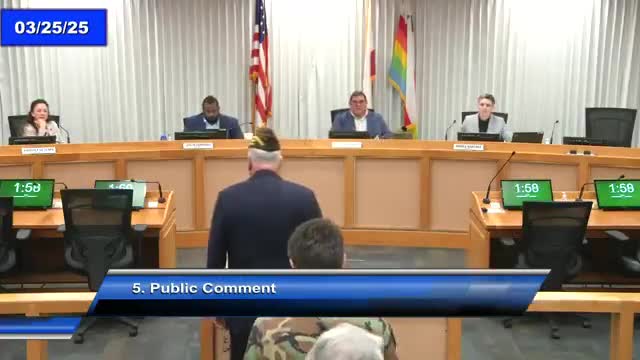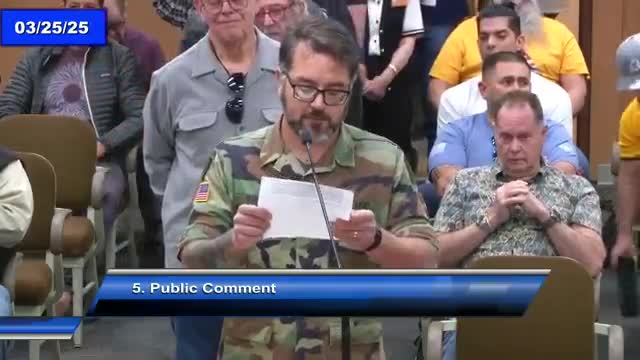Article not found
This article is no longer available. But don't worry—we've gathered other articles that discuss the same topic.

Board adopts pilot program allowing retail cannabis sales at farms and limited consumption lounges with new safeguards

Hundreds of veterans urge board to reinstate county veteran service officer; supervisors ask HR for review

